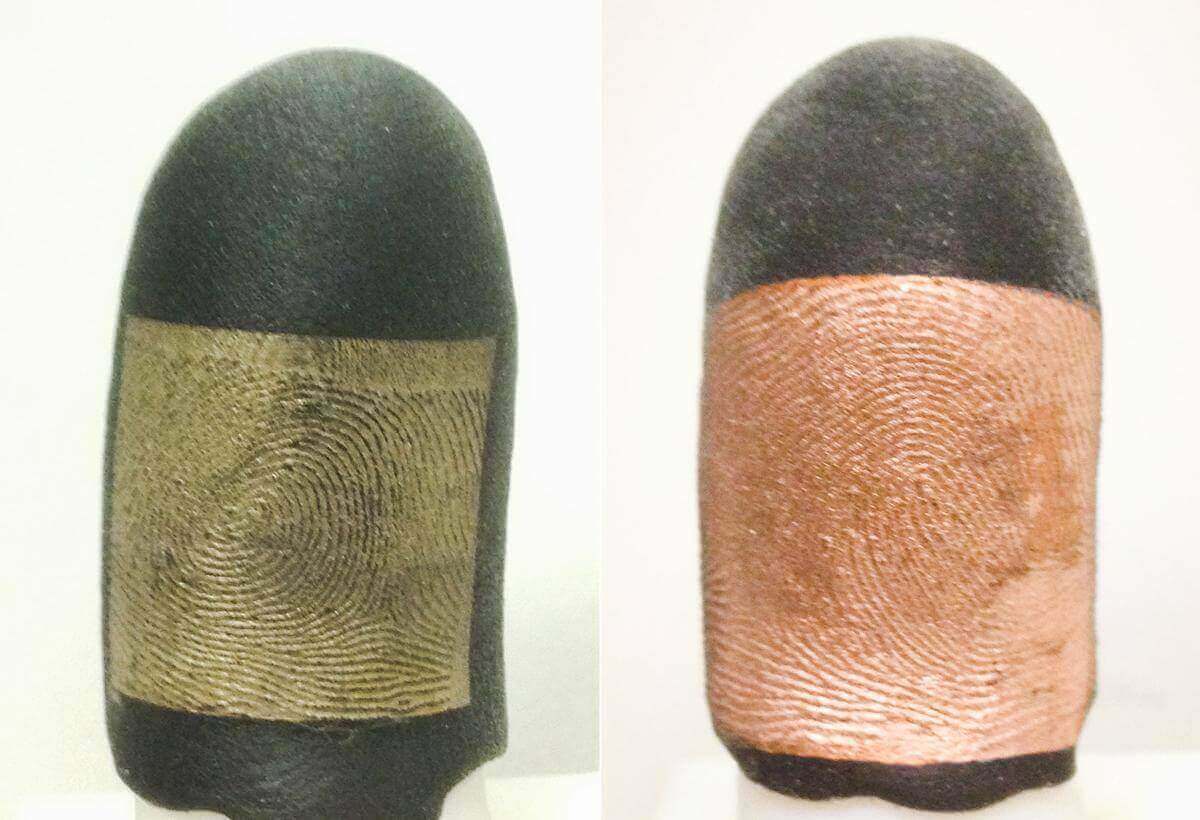Michigan police turn to 3D printing to solve an ongoing murder case. Can 3D printed fingerprints unlock a victim’s smartphone?
It turns out neither your smartphone nor your fingers are protected in death. In an attempt to find clues in an ongoing murder investigation, Michigan police have had fingers 3D printed to unlock the victim’s phone, according to Fusion.
The police are said to have gotten in contact with computer science professor at Michigan State University, Anil Jain, requesting help with unlocking the unnamed victim’s phone. Jain works with biometric identifiers like facial recognition and fingerprint scanner, making him perfect for the job.

Jain and his PhD student Sunpreet Arora were unable to share any further details as the investigation is ongoing. What they can share, is how they hope to unlock the phone.
Scans of the ten fingers were taken while the victim was still alive, presumably from a previous arrest. Jain and his student then 3D printed replicas of the fingers. However, even with perfectly printed fingerprints, the fake digits are useless without a little electricity.
The sensors of fingerprint scanners rely on tiny naturally occurring electrical currents. Human skin is enough for the scanner, but a 3D printed piece of plastic wouldn’t conduct anything. To trick the system, Arora coated the 3D printed fingers in metallic particles. This is also the reason officers can’t simply use the body’s fingers.
How Legal Is This?
Given the complications of suing a phone company to unlock a phone, it’s not so surprising the police have turned to a different method. Moreover, Bryan Choi, researcher on issues of security, law, and technology, told Fusion that 3D printing a finger is much more legally viable than breaking the passcode.
Choi suggests that a password, being memorized and present only in the person’s mind, is protected by the fifth amendment in the USA. Fingerprints, of course, are not.
“Courts generally draw a line between the ‘contents of the mind’ (which is protected) and ‘tangible’ bodily evidence like blood, DNA, and fingerprints (which is not),” said Choi.
The team has not yet handed over the 3D printed fingers to the police to try to unlock the phone. Given that the case is still ongoing, it may be a while until the public hears much more on the case of the 3D printed fingers and the fingerprint scanner.
License: The text of "Cops Use 3D Printed Fingerprints to Solve Murder Case" by All3DP is licensed under a Creative Commons Attribution 4.0 International License.